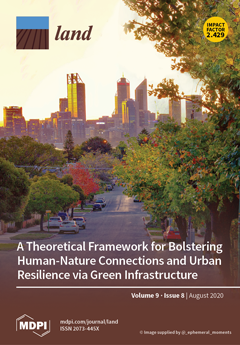Resource information
An increasing number of African States are recognizing customary land tenure. Yet, there is a lack of research on how community rights are recognized in legal and policy frameworks, how they are implemented in practice, and how to include marginalized groups. In 2018–2019, we engaged in collaborative exploratory research on governing natural resources for food sovereignty with social movement networks, human rights lawyers and academics in West and East Africa. In this article, we reflect on the process and methods applied to identify research gaps and partners (i.e., two field visits and regional participatory workshops in Mali and Uganda), with a view to share lessons learned. In current debates on the recognition and protection of collective rights to land and resources, we found there is a need for more clarity and documentation, with customary land being privatized and norms rapidly changing. Further, the voices of women and youth are lacking in communal land governance. This process led to collaborative research with peasant and pastoralist organizations in Kenya, Tanzania, Mali and Guinea, with the aim to achieve greater self-determination and participation of women and youth in communal land governance, through capacity building, participatory research, horizontal dialogues and action for social change.


